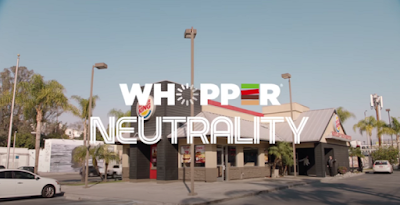Organic marketing vs paid marketing
The term ' Digital Marketing' was first used in the 1990s. Since then, the concept has grown stupendously intertwined with rapid technological innovation and development. Companies heavily rely on digital marketing to globalize their brand and products. It is a well-known fact that digital marketing is in a constant state of flux, and so, companies evolve to keep up with the latest trends. A majority of companies often switch between the two primary branches of digital marketing - organic marketing and paid marketing.
The question is - which one is better for effective utilisation of resources and ensuring maximum output.
 |
| Source: www.yourlistingexpert.com |
Organic marketing also known as inbound marketing, primarily refers to any form of digital marketing that does not include paid advertisements. The goal is to connect with the consumers so that the brand or product remains their first preference. It is the best marketing strategy to build a long-lasting brand and establish a stronghold within the industry.
When it comes to resources, money is not used to boost a specific post or ad. Instead, organic marketing prioritizes effective management and evergreen content for search engine optimization. A solid marketing approach helps in driving traffic towards the website and builds a permanent consumer base. The various means to do so are - pages and blog posts discoverable through search, unpaid posts on industry blogs, social media updates and emails related to the company.
 |
| Source: www.leadgenera.com |
However, the growth is slow-paced and is strenuous to track. The strategy is time consuming, and Search Engine Optimization constantly changes, i.e. it is contentdriven. Companies will have to ensure that their content is top-notch and captivating.
 |
| Source: www.kandra.pro |
The problem with paid marketing is that it is a short-term solution. Around 80% of customers ignore paid ads since they seem unreliable or fake. The phrases 'increased traffic' and 'quick sales' sound like a catch, however, a company should keep this goal in mind- overall growth and long-term stability.
For small scale businesses, paid advertisements leave a dent in the expenditure resulting in a dilemma as they are unable to allocate resources evenly. Also, a proficient study of metrics is essential for the effective use of the concept.
SHOULD A COMPANY SAVE MONEY AND OPTIMIZE RESOURCES OR SPEND IT TO ACCELERATE GROWTH?
While there is no correct solution for this question, it ultimately boils down to the company's mindset and target requirements. Ideally, an amalgamation of both the concepts will not only eliminate a majority of cons from both sides but also, ensure overall growth.
While one establishes reputation and brand image, the other brings in the revenue with a little investment.
The implementation of integrated paid and organic marketing should be smooth and hassle-free. Each should support the other with Search Engine Optimization being the core. In simple words, a search engine with captivating and evergreen content should share data and statistics with the paid marketing sector to improve the efficiency of the target reach. The integrated mechanism helps gain new customers and followers, promote quality content and allows a deeper understanding of data and target audience.
The Bottom Line
Social media is an efficient method to communicate effectively with people and it expedites content reach. A keen interest, eagerness, and loyalty can be established through a thorough organic marketing strategy and reinforced through paid social campaigns. Ultimately, organic marketing vs paid marketing is an unrealistic choice to make, irrespective of the size of the company or the nature of the industry. Strategic planning, consistency and the modern marketing approach pay off as it combines the two approaches in a way that makes the consolidated output stronger than if they were run independently.
- S Shwetha Iyer


Comments
Post a Comment